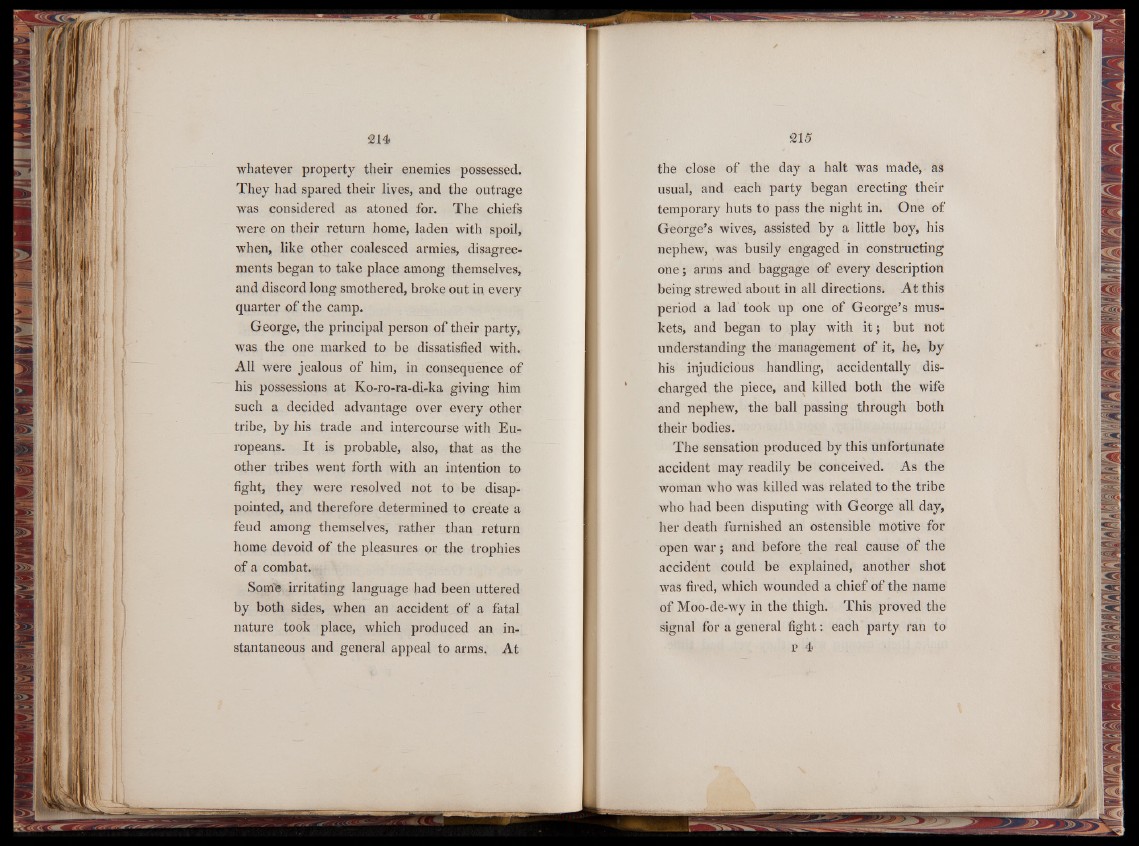
whatever property their enemies possessed.
They had spared their lives, and the outrage
was considered as atoned for. The chiefs
were on their return home, laden with spoil,
when, like other coalesced armies, disagreements
began to take place among themselves,
and discord long smothered, broke out in every
quarter of the camp.
George, the principal person of their party,
was the one marked to be dissatisfied with.
All were jealous of him, in consequence of
his possessions at Ko-ro-ra-di-ka giving him
such a decided advantage over every other
tribe, by his trade and intercourse with Europeans.
It is probable, also, that as the
other tribes went forth with an intention to
fight, they were resolved not to be disappointed,
and therefore determined to create a
feud among themselves, rather than return
home devoid of the pleasures or the trophies
of a combat.
Some irritating language had been uttered
by both sides, when an accident of a fatal
nature took place, which produced an instantaneous
and general appeal to arms. At
the close of the day a halt was made, as
usual, and each party began erecting their
temporary huts to pass the night in. One of
George’s wives, assisted by a little boy, his
nephew, was busily engaged in constructing
one; arms and baggage of every description
being strewed about in all directions. At this
period a lad took up one of George’s muskets,
and began to play with it; but not
understanding the management of it, he, by
his injudicious handling, accidentally discharged
the piece, and killed both the wife
and nephew, the ball passing through both
their bodies.
The sensation produced by this unfortunate
accident may readily be conceived. As the
woman who was killed was related to the tribe
who had been disputing with George all day,
her death furnished an ostensible motive for
open war; and before the real cause of the
accident could be explained, another shot
was fired, which wounded a chief of the name
of Moo-de-wy in the thigh. This proved the
signal for a general fight: each party ran to
p 4